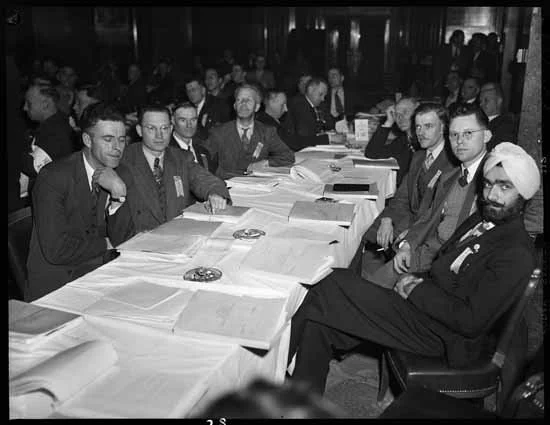In 1931 times were tough. Jobs were scarce and the Depression was looming. Fraser Mills began a series of wage cuts and the Lumber Worker’s Industrial Union led a two-and-a-half-month long strike. Strikes were common at the time, but what set the Fraser Mills one apart was that it included all labourers, not just the white workers. The solidarity provided by the Chinese, Japanese, and Sikh workers was a critical element. Other strikes floundered because these communities often stepped into jobs vacated by strikers. At Fraser Mills they joined the strike.
Among the workers’ demands were a ten-cent hourly wage increase, recognition of a union-led negotiating committee, abolition of the scrip system at company stores, and renovation of the living quarters used by Asian workers. They also called for the elimination of Chinese and Japanese, so called ‘ straw bosses’ who skimmed 25 cents off Asian workers’ cheques, and who routinely fired any workers they liked, and replaced them with others.
An unidentified Sikh man attends the 12th annual International Woodworkers of America convention at Hotel Vancouver, January 15, 1949. Vancouver Public Library, accession #80796C, photographer Art Jones, public domain.
“… although most of the Orientals— who are very, very afraid of being shipped back to China or to Japan or to India… in spite of all, they stood up. Although they didn’t come very strong on the picket line, they never scabbed and they never bucked the union.”

